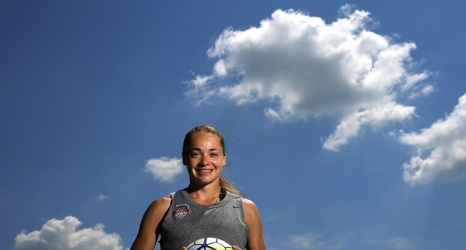Estefania Banini’s parents took her from club to club in Mendoza, Argentina, searching for a place for their 5-year-old daughter to play soccer.
No, came the answer. No, again and again. At least 10 times.
It was 1995, and in Argentina, as in much of Latin America defined by machismo culture, girls did not play soccer. Girls played field hockey. Soccer was a man’s game, the union between fathers and sons, male bonding bridging generations.
“It’s a very manly sport and, at that time, women faced discrimination about playing soccer,” Banini, a 26-year-old Washington Spirit attacker, said this week.
